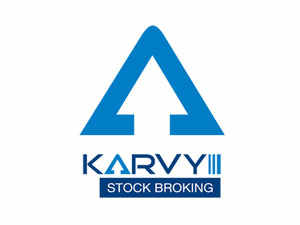
“Demat holders in Karvy Stock Broking now have to transfer their securities and close their Karvy demat accounts. This will be an off-market transfer and investors do not have to pay any capital gains tax. Transferring select securities attracts charges, transferring all securities does not,” says Kaushlendra Singh Sengar, Founder, Advisorymandi.com.
Potential for frauds is low today, particularly after Sebi standardised norms for drafting power of attorney (PoA) agreements. However, investors still need to be vigilant, as unscrupulous brokers do find ways to subvert the system. In the face of zero brokerage and struggling with cost of survival, many prominent brokers are known to indulge in such practices. Often, brokers who overleverage themselves resort to such doings.
How to safeguard against fraud
- Make sure mobile number and email ID records are updated with the depository
- Check SMS or email statements sent by depository after every transaction in demat account
- Ask the broker to furnish ledger balance and stock statements at least once in 90 days
- In case of fraud or inaction by broker, make timely complaint to the depository
- Avoid keeping excess money in broking account; transfer money from savings account only at time of purchase
- Avoid keeping signed delivery instruction slip with broker for offl ine trades
- Open your demat account with banking brokers for better safety
- Study the financial health of the broker
“You can register on the portals of either NSDL or CDSL and get all details related to your holdings from these depositories online or using their mobile applications. For example, CDSL offers an ‘Easy’ facility to view the demat holdings and transactions and an ‘Easiest’ option to view and transact in your demat account,” says Sengar. Users need to reconcile their holdings regularly with depository statements—specifically number of shares and not value of shares— sent every month (if transaction happened in that month). If no transaction happened during the month, the statements will be sent every quarter.
“The only practical solution to any such frauds in the financial sector is complaining to Sebi immediately after noticing any discrepancy or malpractice. Before posting their problems on social media, people should promptly bring the issue to the notice of the concerned authorities,” says Rachit Chawla, Founder & CEO, Finway.
The PoA has long been a bone of contention when opening a demat account. The brokerage can’t force you to sign one. However, given the convenience, it is beneficial for the investor to give the PoA, say experts. It allows the broker to access your demat account to release shares when they are sold. It also facilitates easy receipt and payments. Without the PoA, the customer would have to sign a delivery instruction slip that has to be physically submitted to the broker on time for release of shares. The PoA can be revoked any time without notice. However, this revocation is not applicable in case of outstanding dues or settlement obligations from trades carried out by the client before the revocation.
(Your legal guide on estate planning, inheritance, will and more.)
Download The Economic Times News App to get Daily Market Updates & Live Business News.
Read More News on
(Your legal guide on estate planning, inheritance, will and more.)
Download The Economic Times News App to get Daily Market Updates & Live Business News.










 Get Unlimited Access to The Economic Times
Get Unlimited Access to The Economic Times
